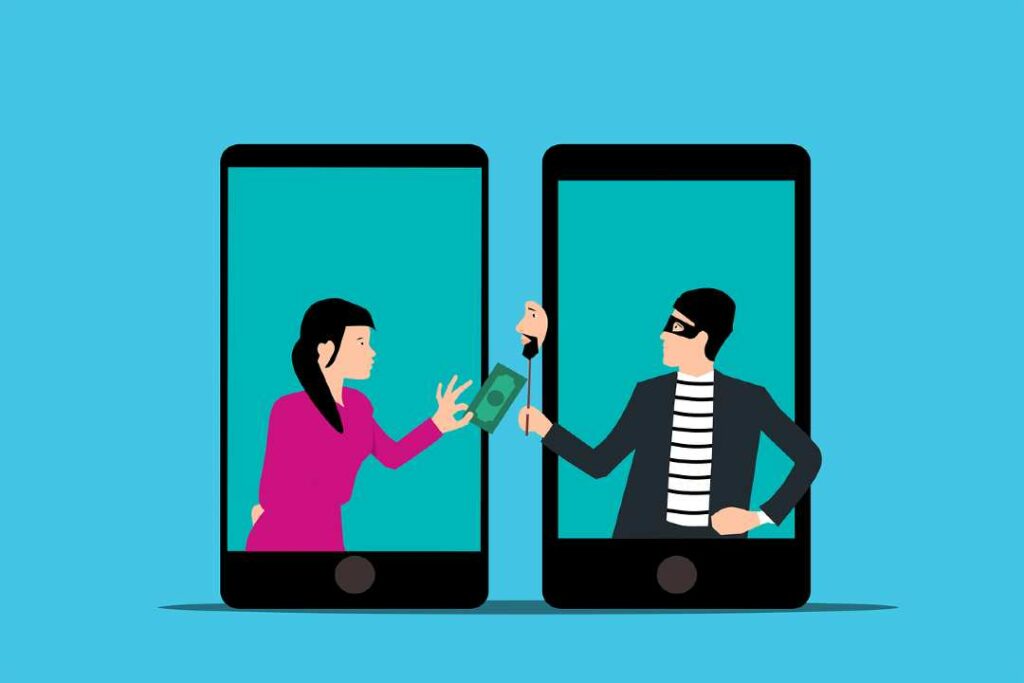The Better Business Bureau (BBB) has issued a crucial warning about a new phone call scam targeting unsuspecting individuals. Known as the "Can You Hear Me?" scam, this deceptive tactic is designed to elicit a simple "yes" response from victims. However innocent it may seem, the BBB urges the public to exercise caution and resist the temptation to respond affirmatively. In this article, we will shed light on how this scam operates and provide essential tips on how to protect yourself from falling victim to this fraudulent scheme.
"Are you there?" or "Is this you?" or "Can You Hear Me?" Scam Explained
The "Can You Hear Me?" scam begins with an unsolicited phone call from an unknown number. When you pick up the call, the caller immediately asks questions like "Can you hear me?" or "Are you there?" or "Is this you?". The objective is to entice you to respond with a simple "yes." However, unbeknownst to many, this seemingly harmless response can be exploited by scammers in various malicious ways.
How the Scammers Exploit Your "Yes" Response
By recording your affirmative response, scammers gain a dangerous tool they can use for fraudulent activities. They may attempt to manipulate your recorded "yes" response to make it sound like you agreed to a purchase, a service subscription, or some other financial transaction. In doing so, they aim to deceive businesses and financial institutions into thinking you willingly authorized these transactions. Consequently, you could find yourself facing unauthorized credit card charges or receiving bills for products or services you never actually agreed to.

Protect Yourself from the "Can You Hear Me?" Scam
It is essential to remain vigilant when answering calls from unknown numbers. To safeguard yourself from falling victim to the "Can You Hear Me?" scam, consider the following precautions:
- Hang up or Don't Respond: If you receive a call from an unfamiliar number and the caller asks questions prompting a "yes" response, simply hang up the call immediately. Ignoring the call and not giving any response is the safest course of action.
- Ask Questions Back: In some cases, rather than hanging up, you might respond with questions of your own, such as "What is this call regarding?" or "Who are you calling from?". This approach not only prevents the scammer from obtaining a clear "yes" response but also helps you gather more information about the caller's intentions.
- Check Your Statements and Bills: Regularly review your credit card statements and phone bills for any unauthorized charges or unfamiliar transactions. Being proactive in monitoring your financial records can help you detect suspicious activities early on.
FAQs about the "Can You Hear Me?" Phone Scam
What is the "Can You Hear Me?" phone scam?
The "Can You Hear Me?" phone scam is a deceptive tactic used by scammers to elicit a simple "yes" response from victims during unsolicited phone calls.
How does the Can You Hear Me scam work?
Scammers initiate the call and immediately ask questions such as "Can you hear me?" or "Is this you?" in an attempt to get you to answer with "yes."
Why should I be cautious about saying "yes"?
Saying "yes" can be recorded by scammers, who may then use your response to fraudulently authorize transactions or services in your name.
What can scammers do with my recorded "yes" response?
Scammers may use the recorded "yes" to make it sound like you agreed to purchases or services, leading to unauthorized credit card charges or bills.
Are all unsolicited calls with "Can you hear me?" questions scams?
Not all unsolicited calls are scams, but it's crucial to remain cautious and avoid responding with "yes" to unknown callers.
What should I do if I receive a call with "Can you hear me?" questions?
If you receive such a call, it's best to hang up immediately or avoid responding with "yes." Ignoring the call altogether is the safest option.
Can asking questions back prevent the scam?
Yes, responding with your questions can disrupt the scammer's attempts to obtain a clear "yes" response and provide you with more information about the caller's intentions.
What if I suspect I fell victim to this scam?
If you believe you might have been a victim, don't panic. Be diligent and carefully check your credit card statements and phone bills for any unauthorized charges.
How can I protect myself from phone scams in general?
To protect yourself from phone scams, be cautious when answering calls from unknown numbers, never share personal information, and consider using call-blocking features or apps to filter out spam calls.
Conclusion
The "Can You Hear Me?" phone scam is a growing threat, and scammers are becoming increasingly sophisticated in their tactics. The Better Business Bureau advises the public to remain cautious when answering calls from unknown numbers, as a simple "yes" response could have severe consequences. By following the tips provided in this warning, you can better protect yourself from falling victim to this fraudulent scheme. Stay informed, be diligent, and spread the word to help others avoid becoming victims of this pervasive scam. Together, we can make it harder for scammers to succeed and protect our hard-earned money and personal information.


Leave a Reply